20 books to read about Palestine
It’s no secret that Palestinians have a rich tradition of arts, culture, literature and music — a mechanism of survival throughout decades of occupation and colonial displacement that has immortalised their creative output as a way to resist Israel.
As Israel’s onslaught of Gaza — what South Africa is fighting in the International Court of Justice to declare a genocide — enters its ninth month, and almost 38,000 Palestinians have been killed in the continuing siege and bombings, the need to highlight Palestinian voices in art, culture, and literature grows all the more urgent.
If, as the saying goes, existence is resistance, then Palestinians daring to share their stories and tell the world of their plight stand in the most exalted echelons of dissidence against the occupier. Whether it’s the cartoonist Naji al-Ali, the novelist Ghassan al-Kanafani, or the writer and teacher Refaat al-Alareer, Israel has tragically killed the most legendary and unforgettable Palestinian literary authors, knowing the power their pens held in galvanising resistance against it.
And yet, the deaths of Palestinian authors has only cemented the magnitude of their revolutionary works, allowing their voices to reverberate beyond the grave. In addition to the works of these late authors, commercially successful novels like Susan Abulhawa’s Mornings in Jenin, Hala Alyan’s Salt Houses, Leila Abdulrazzaq’s graphic novel Baddawi or Aya Ghanameh’s children’s book These Olive Trees teach the history of Palestine and its people from a purely human lens, allowing readers to wander in a novel or affording young children the accessibility to understand a brutal assault that has systemically targeted teenagers and babies construed as a demographic ‘threat’ by Israel.
Scholars such as Edward Said, Ilan Pappé, Tareq Baconi and the journalist Gideon Levy share their expertise in understanding the political dynamics of the occupation without sugarcoating the reality of Israel’s brutalities against the Palestinian people.
Without further ado, here are 20 books to better understand the Palestinian people, the displacement they have faced, their cultural erasure, generational trauma, colonisation, and the impacts of the ongoing brutalisation of their people that has continued for the past 76 years.
Light in Gaza: Writings Born of Fire, ed. by Jehad Abusalim

“This book is an attempt to break the intellectual blockade and the political exclusion of Palestinian voices,” Jehad Abusalim writes in the introduction of Light in Gaza, a gorgeous anthology of narrative essays in which different Palestinian writers in Gaza recount their experience of living in the besieged strip, the condition of displacement, and using their voices to resist the occupation.
The late Refaat Alareer recounts throwing stones as a child and the mundane reality of Israeli occupation forces shooting and killing Palestinians. The poet Mosab Abu Toha writes on the importance of creating art, film, writing, and cultural spaces like libraries to struggle against the occupation, and Asmaa Abu Mezied examines how Gazans continue to record on their phones: “We record our strength and our vulnerability, our disappointment in our leadership, and our rage at the silence of the world.”
The Question of Palestine by Edward Said

The Question of Palestine vested Palestinians with a voice and identity in a world where they were reduced to ‘terrorist’ caricatures, a barely-tolerable “nuisance” as displaced refugees or natives inconveniently living on a land coveted by Zionist settlers, or worst and most common of all, the status of nonexistence, an erasure which reduced them to simply ‘Arabs’ or ‘Jordanians’ or asserted that Palestine was empty before Zionists arrived. As former Israeli prime minister Golda Meir famously remarked, “They do not exist.”
In this elegant, concisely-argued book, Said investigates the question of Palestine through three lenses — the historic presence of an indigenous population in Palestine throughout centuries by examining early 20th-century censuses and even older written literature; the impact of Zionist settler colonialism on displacing Palestinians from their homes, and creating a unified experience of statelessness; and the emergence of a collective Palestinian identity with the Palestine Liberation Organisation and nationalist movements that called for the creation of a Palestinian state.
“It is a striking fact that merely to mention the Palestinians or Palestine in Israel, or to a convinced Zionist, is to name the unnameable, so powerfully does our bare existence serve to accuse Israel of what it did to us,” Said writes in The Question of Palestine.
The first of its kind, Said’s groundbreaking book caused a stir when it was published in 1979, only a year after the release of his sensational Orientalism and Jimmy Carter’s brokerage of a tenuous peace between Israel and Egypt, temporarily putting an end to war in the Middle East. As such, Said’s undertaking with The Question of Palestine far surpassed even Orientalism, which broadly unpacked the racist depictions of Arabs and Muslims in Western media and literature, a threat to be quelled by the ‘civilising’ mission of Europe; the onus of The Question of Palestine was to affirm and validate the existence and identity of the Palestinian people, as both the Zionist and enlightened Western narrative relegated them to the point of invisibility.
Today, as Israel enacts a military campaign in Gaza with the aim of removing Palestinians from the land, Said’s book remains as relevant as ever, not only in representing Palestinians in a political discourse that has always erased them, but in establishing that Zionism has always been a form of colonialism.
Zionist collusion with British colonists in the 1917 Balfour Declaration led to the creation of Israel, built on the dehumanisation of the mostly Arab peoples who already lived in Palestine and the wider Sham region, an enterprise of racist colonisation rather than any kind of self-determination for a persecuted European Jewish minority, as Said eloquently writes in Zionism from the Standpoint of Its Victims.
And while Palestine itself no longer exists, Said writes, “except as a memory or, more importantly, as an idea, a political and human experience, and an act of sustained popular will”, the continued existence of Palestinians and the Palestinian ‘idea’ incur global resistance — an unstoppable movement of the landless and oppressed taking back what’s theirs.
Men in the Sun and Other Palestinian Stories by Ghassan Kanafani
A spokesperson for the Popular Front for the Liberation of Palestine (PFLP), Ghassan Kanafani remains one of the most iconic Palestinian writers of the 20th century, known for his modernist stories about the drama and psychological impact of war and exile, not unlike the style exhibited in Rabindranath Tagore and Saadat Hasan Manto’s groundbreaking works.
Even in English translation, Kanafani’s novellas and short stories hum with the poeticism of the Arabic language in which they were written, as he surveys the rage, despair and melancholy of Palestinians living in refugee camps, disillusioned with losing battles of resistance, confronting emotional strife within their own families, and illegally crossing borders to find work. Despite his activism — or maybe because of it? — Kanafani resisted the diktats of what James Baldwin called the “protest novel”; the Palestinians in Kanafani’s stories traverse the full moral spectrum of human experience, a brutally honest mirror to the lived realities of generational trauma and displacement.
Kanafani’s voice and popularity ultimately proved a threat to Israel, and the writer was killed by Mossad agents in a car bomb in Lebanon in 1972 alongside Lamees Najim, his 17-year-old niece. He was 36 years old.
A Child in Palestine by Naji al-Ali

The beloved cartoonist Naji al-Ali doodled Handala in the 1960s, a drawing to remind him of his roots as he lived the good life in exile in Kuwait in the 1960s. The symbol of enduring iconicity still hangs on the walls of Palestinian homes, adorns jewellery, and appears in graffiti from Tel Aviv to the West Bank.
Handala is a 10-year-old boy with his back turned to the viewer, his hands clasped behind him, barefoot in scrappy clothes, representing “the poorest, most powerless Palestinian”, writes Joe Sacco in the introduction of A Child in Palestine, who is homeless and impoverished, and comes from the honest fellahin (farmers). Handala is perpetually 10, the same age al-Ali was after being displaced from his home in Palestine, never to grow up, frozen in time due to his inability to return home.
Al-Ali’s cartoons were published in newspapers across the Middle East in the 1970s, stoking fire to Palestinian nationalism, and are collected in A Child in Palestine. In 1987, al-Ali was shot by an unknown gunman in London; he died five weeks later after laying in a coma. To this day, Handala remains faceless, as al-Ali once said that Handala will only turn around when he can return to his home after Palestine is freed, a day that has yet to come.
My People Shall Live by Leila Khaled
Part history lesson, part political propaganda, and all memoir, Leila Khaled’s searingly honest autobiography traces her life from when she had to leave Haifa with her mother and siblings just days after her fourth birthday in 1948 to the 1969 hijacking of TWA Flight 840 headed to Israel, which shot her to global headlines as the most iconic face of Palestinian resistance, second only to Yasser Arafat.
“[My oppressor] is in no position to render an impartial judgment or to accuse me of air piracy and hijacking when he has hijacked my home and hijacked me and my people out of our land,” Khaled writes in My People Shall Live. This same passionate voice anchors the entire book, as Khaled chronicles the deterioration of the Arab League, the betrayal of the Palestinians by Arab “kings and colonels”, and the symbolic importance of Palestine in internationalist movements in the third world in the 1960s and 70s.
In recounting her own journey, Khaled shows how she became a revolutionary prepared to die for her people for liberation by any means necessary, achieving an infamy shared by the likes of Malcolm X and Che Guevara.
Minor Detail by Adania Shibli
Drawn in sparse, haunting prose, Adania Shibli’s novel focuses on the rape and murder of a Bedouin girl kidnapped by Israeli soldiers in the arid expanse of the Negev Desert in 1949 when Egypt and the other Arab states went to war with Israel. Shibli’s narration has the feel of a psychological thriller, using words quietly and directly, letting the silence of what’s not said reverberate in the desert, and maintains its harrowing effect decades after the gang-rape, when a Palestinian researcher investigates this forgotten ‘detail’.
Minor Detail was long-listed for the International Booker Prize, and scheduled to receive an award at the Frankfurt Book Fair until Shibli was disinvited in wake of Hamas’ attacks and Israel’s genocidal bombardment in Gaza, a move that publishing insiders say is an act of censorship. In a recent interview with The Guardian, Shibli spoke about how the pain of the occupation has led to a lapse in words, saying: “Literature, for me, is the only place that accepts silence.”
Salt Houses by Hala Alyan

Writer and poet Hala Alyan’s lyrical novel begins on the eve of Alia’s wedding in Nablus in 1963, as her mother Salma overturns a coffee cup to interpret the dregs for her daughter’s future. What she sees is an omen for the storyline that unravels in the rest of the book, a confirmation of its title: “houses that will be lost.”
Following the fate and fortunes of an upper-middle-class Palestinian family across three generations, Alyan shows the human cost of the Six-Day War after Alia’s charismatic brother Mustafa is killed in prison for rebelling, and she spends the rest of her life in the shadow of his memory, even as she raises her children with her husband Atef in an otherwise comfortable life in Kuwait. Each chapter in Alyan’s novel is written from the perspective of a family member in almost vignette-like fashion, stretching from 1963 Palestine to when Manar, Alia’s granddaughter, visits Jaffa in 2014, glimpsing the red door of the seaside villa her family was forced to abandon in the 1940s.
A psychologist by profession, Alyan wrote in The New York Times in wake of Israel’s assault on Gaza: “As long as we [Palestinians] exist, we challenge several falsehoods, not the least of which is that, for some, we never existed at all…Imagine being such a pest, such an obstacle. Or: imagine being so powerful.”
Nothing More to Lose by Najwan Darwish

Najwan Darwish’s acute sensitivity as a poet is precisely why it’s hard to read Nothing More to Lose without flinching, and yet the intensity of his poems makes it difficult to look away. Covering the visceral horrors of the occupation, the grief of loss, and the hope of love — all with a wry, cynical bite — Darwish writes of Jerusalem, the city in which he was born, “I name you Medusa/I name you the older sister of Sodom and Gomorrah/When I leave you I turn to stone/And when I come back I turn to stone.”
Even with ancient civilisational references of the land in which he was born — varying from Saladin’s conquest of Jerusalem, Jesus and the angels, the Christian preacher Quss Bin Saidah, and the expulsion of Jews from Spain — Darwish’s oeuvre is thoroughly modern, depicting the realities of the occupation today and continuously referencing the Armenians and Jews in the shared pain of genocide.
In Who Remembers the Armenians?, Darwish writes: “I remember them/and I ride the nightmare bus with them/each night/and my coffee, this morning/I’m drinking it with them,/You, murderer—who remembers you?”
The Punishment of Gaza by Gideon Levy
Gideon Levy, Israel’s seminal dissident journalist and a regular contributor to Haaretz, documents the stories of everyday Palestinians in Gaza as they suffer missile attacks, bomb blasts, airstrikes, and the bullets of soldiers in this stunning work of narrative journalism.
Levy shows the tragedy of Gazans dying, losing family members or becoming disabled as a result of Israel’s horrific siege and onslaught on Gaza since Hamas’ election win in 2006 with the observant empathy and attention to detail of a good journalist. Levy asks: “[I]s there nothing here that will stop this blood pipeline?”
The Book of Gaza: A City in Short Fiction, edited by Atef Abu Saif
Atef Abu Saif, Palestine’s minister of culture, collects short stories from Gaza, where the short form of storytelling prevailed due to printing restrictions and writers’ inability to sit and work for long periods of time due to the daily violence they faced.
The brevity of these stories packs more punch: 10 different Gazan writers traverse love, loss, humanistic interactions with the enemy, arrests and interrogations in jail cells, and the all-too-mundane reality of living in an open-air prison, seamlessly blending the personal with the political.
Hamas Contained by Tareq Baconi

Tareq Baconi, a political analyst and the president of the think tank Al-Shabaka: The Palestinian Policy Network, traces the roots of Hamas in the First Intifada, founded by Sheikh Ahmed Yassin, a wheelchair-bound paraplegic imam in Gaza, and its rise to democratically winning the 2006 elections in the Palestinian territories.
Blending a creative nonfiction style with incisive political commentary, Baconi examines the history of Islamic nationalism in Palestine with the Syrian anti-colonial preacher Izz ad-Din al-Qassam, murdered by British colonial forces in the 1930s, flashpoint events like the 1994 massacre of worshipers in a mosque in Hebron, and the declining popularity of secular resistance after the pacification of the Palestine Liberation Organisation.
Baconi’s authoritative account forces readers to look at the controversial militant group as a genuine political organisation, which gained popularity among Palestinians due to its social welfare programmes and widespread disappointment in the corruption of the Palestinian Authority.
In October, The New Yorker interviewed Baconi for his expert opinion in the wake of Hamas’ October 7 attacks in Israel and in November, Baconi wrote for Foreign Policy: “The choice, as Hamas saw it, was between dying a slow death — as many in Gaza say — and fundamentally disrupting the entire equation.”
10 Myths About Israel by Ilan Pappé
This slim 192-page book by acclaimed Israeli scholar Ilan Pappé, also the author of The Ethnic Cleansing of Palestine, debunks the foundational myths on which Zionism as a state project continues to fuel the erasure, exodus and genocide of Palestinians. Pappé contests the oft-repeated myth that Palestine was empty and not inhabited before the 1917 Balfour Declaration that paved the way to the creation of Israel, showing that Palestine as a concept dated back to Roman times, and “a thriving Arab society” always existed due to the land’s “fertility and strategic location.”
Pappé also dispels the myth that Palestinians left voluntarily in 1948, detailing the well-documented history of the Deir Yassin Massacre in which at least 107 Palestinian villagers were killed by Zionist settlers, and similar acts of ethnic cleansing in urban areas like Jerusalem, Haifa and Jaffa in the months before Israel was created.
Finally, in the third section of the book, Pappé looks at the current political situation, specifically the failure of the Oslo Accords and the increasing irrelevance of the secular Palestinian Authority, which led to the rise of Hamas in the resulting vacuum as an alternate form of political representation for Palestinians. The author concludes by declaring an impending funeral for the two-state solution, and stating that a binational one-state solution free of apartheid and racist policies is the only hope for peace in the region.
Rifqa by Mohammed El-Kurd
Activist and writer Mohammed El-Kurd shot to fame in 2021 for documenting the ongoing theft of his home by settlers in the Jerusalem neighbourhood of Sheikh Jarrah on social media, and has been named one of the “most visible Palestinians alive today” by GQ Middle East. Rifqa is the name of El-Kurd’s grandmother, who is older than the state of Israel.
El-Kurd uses poetic verse to tell a semi-autobiographical account of his life, writing of being born on the 50th anniversary of the Nakba and growing up with checkpoints, bomb blasts, and daily harassment by Israeli security forces. A keen wit bubbles beneath his words: “My mother has always said:/‘The most tragic of disasters/are those that cause laughter’.”
Sharon and My Mother-In-Law: Ramallah Diaries by Suad Amiry

Suad Amiry collects her diaries from 1981 to 2004 in this hilarious memoir, as she moves to Ramallah, falls in love with her future husband, and teaches architecture at Birzeit University.
Between returning to her lost family home in Jaffa, telling off interrogators at the Israeli airport, and contemplating signing an anti-PLO statement to avoid deportation because — guess what, she’s in love! — Amiry’s warm voice sounds like a friend recounting a funny story over lunch, using humour to both cope and make fun of the everyday absurdities of the occupation, peaking in the year when Amiry has to live with her mother-in-law due to Israel’s attack on the Occupied Territories.
“Writing was an attempt to release the tension caused and compounded by [former Israeli premier] Ariel Sharon and my mother-in-law,” she jokes, only half-serious.
Mornings in Jenin by Susan Abulhawa
Susan Abulhawa’s multigenerational saga about a Palestinian family displaced from their native town of Ein Hod to a refugee camp in Jenin was originally published in 2006 under the title The Scar of David and went on to sell over a million copies, making Abulhawa one of the most widely-read Palestinian authors of all time.
Mornings in Jenin follows the lives of the Abulheja family after Hassan falls in love with Dalia, a rebellious Bedouin girl, and marries her a few years before the 1948 Nakba that displaced almost a million Palestinians and led to the creation of Israel. Hassan and Dalia raise three children — Yousef, who joins a militant group after his wife and daughter are killed in the 1982 Sabra and Shatila massacre, Ismael, who is kidnapped by Jewish settlers as a child and grows up to become an Israeli soldier, and Amal, who makes it out of the refugee camp and studies at a university in America, but at the cost of her identity.
Inspired by her own eyewitness account of the Jenin refugee camp in the aftermath of a deadly massacre in 2002, Abulhawa brings the tragedy of ethnic cleansing to visceral life in her dynamic prose, traversing the 1967 war and the First Intifada, drawing her characters with empathy as they bear witness to the genocide of their people.
Born Palestinian, Born Black by Suheir Hammad
Suheir Hammad’s trailblazing poetry expressed her unique identity as a Palestinian-American woman in the 90s and early 2000s, who grew up in a multicultural community in Brooklyn alongside Haitians, Dominicans, Puerto Ricans, and Black Americans. She achieved public recognition after appearing on Def Jam Poetry, an HBO series highlighting spoken word poets, after hip-hop mogul Russell Simmons discovered a poem she wrote about 9/11.
Since then, Hammad has appeared in the film Salt of This Sea about a Palestinian-American woman’s return to her homeland, and published several books, including a reprint of her 1996 Born Palestinian, Born Black, which echoes the poetry of June Jordan, a pioneering Black writer and activist.
Hammad channels emotions and the senses in poems brimming with hope amidst suffering, writing in a disjointed style that reflects the fracture of Palestinian identity. And in keeping with the aims of spoken word, an art form developed by the Black American community, her poems are a call to action as much as they are a depiction of the Palestinian experience.
“I will not/dance to your war/drum. I will/not lend my soul nor/my bones to your war/drum,” Hammad writes in What I Will. “Life is a right not/collateral or casual. I/will not forget where/I come from.”
These Olive Trees by Aya Ghanameh
A children’s book, These Olive Trees shows a little girl’s love for her homeland as she picks olives with her mother, testifying to the vital importance olive trees play in the lives of Palestinians, the majority of whom were farmers before the Israeli occupation.
Aya Ghanameh’s simple yet stunning illustrations enhance a storyline easily understandable for kids, even as Oraib (based on Ghanameh’s grandmother) has to abandon the olive trees when war knocks on her family’s door.
Baddawi by Leila Abdelrazaq

This black-and-white graphic novel is reminiscent of Marjane Satrapi’s Persepolis, documenting Ahmad’s coming of-age amidst life-changing political events in the Middle East as he grows up in a Palestinian refugee camp in northern Lebanon. The story itself is nonfiction — Leila Abdelrazaq, a Palestinian-American artist and formerly a student organiser with National Students for Justice in Palestine, writes and illustrates her own father’s childhood, as he braves cluster bombs, rubber bullets and murderous raids of the camp — all the while playing football with his friends and trying to get through school.
Mural by Mahmoud Darwish
Considered one of the greatest poets of the Arabic language, Mahmoud Darwish vocalised the struggles of the Palestinian people in poems that likened the loss of their native land to the fall of Adam and Hawwa from heaven. Mural skirts the line between the sacred and the sinned, ruminating on death, martyrdom, and resurrection. “I came before the hour so no angel approaches to ask:/what did you do over there in the world?” Darwish writes.
Displaced from his home at the age of seven, Darwish grew up in Israel with the marginal status of an ‘internal refugee’. In 1970, he shifted to the Soviet Union for his studies before living in Egypt and Lebanon, where he became involved with the Palestine Liberation Organisation and befriended other writer-activists, such as Ghassan Kanafani, Lebanese poet Khalil Hawi, and Faiz Ahmad Faiz, who fled to Beirut in the Zia years.
In 1988, Darwish wrote the Palestine National Council’s Declaration of Independence in Algiers, which established the right of return, independence and sovereignty of Palestinian people on their land. He died in 2008 at the age of 67 after complications from a heart surgery in Houston, Texas.
Reflections on Exile by Edward Said
Said examined politics, nationalism and history through the realm of literary criticism, and this talent is on full display in Reflections on Exile, a tome collecting essays spanning his upbringing in Cairo where he attended an elite school from which he was expelled, how contemporary Arabic literature evolved from Egyptian writer Naguib Mahfouz’ modernist novels to Elías Khoury’s fragmented works in war-torn Lebanon, that time his office at Columbia was set on fire after the Jewish Defence League called him a “Nazi”, and much more.
Palestine and the sense of never belonging anywhere threads the 656-page book, and in On Lost Causes, Said reflects on the nadir of the Palestinian liberation struggle with Israel’s renewed violence in the Occupied Territories following the Oslo Accords.
“How does the cause of a people, a culture, or an individual become hopeless? We had once believed as a people that there was room for us at the rendezvous of destiny,” Said writes wistfully. And yet, can a cause truly be lost? Said concludes it is the “intransigence of the individual thinker” within whom lies the “power of expression” that signals a hope for liberation as long as defiance exists.







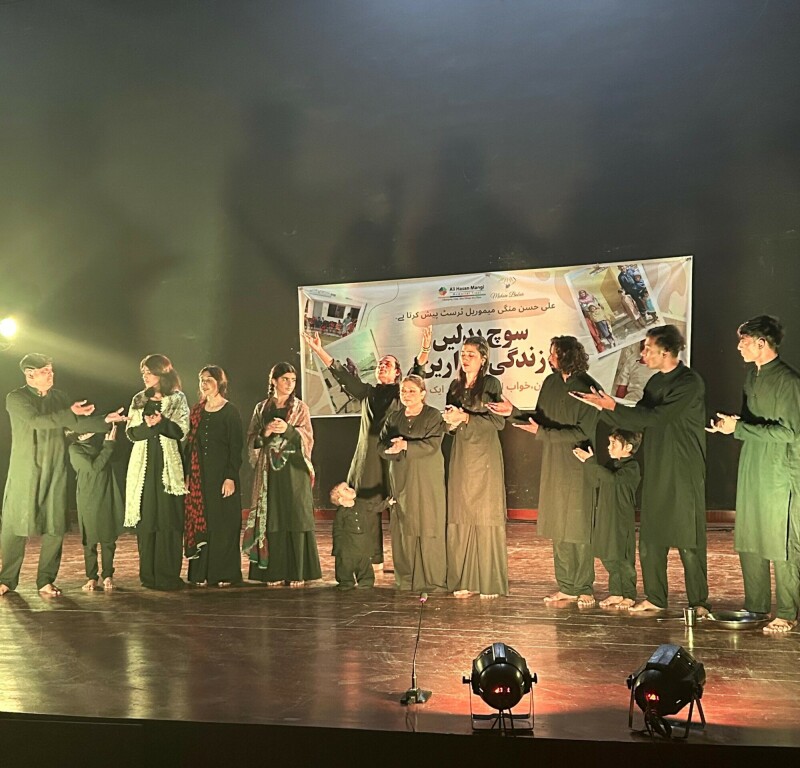
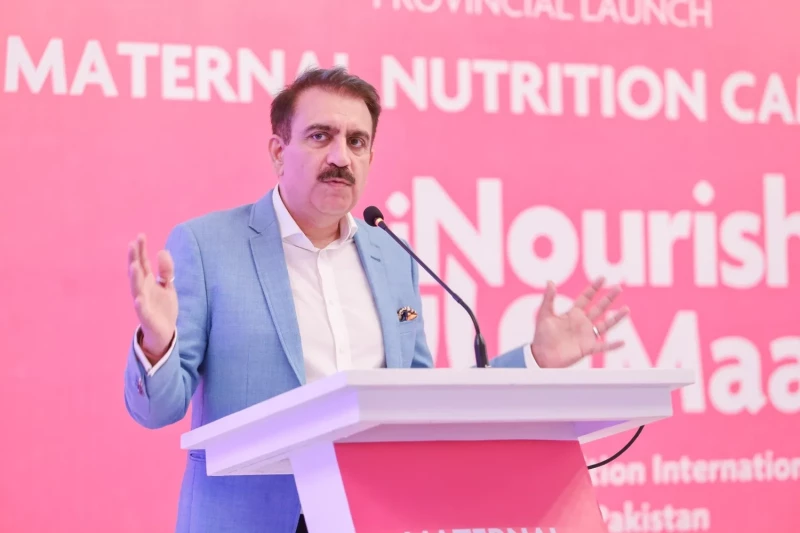

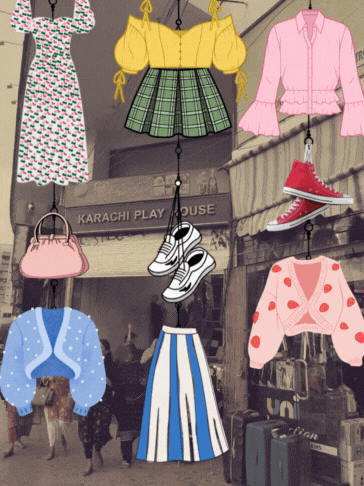

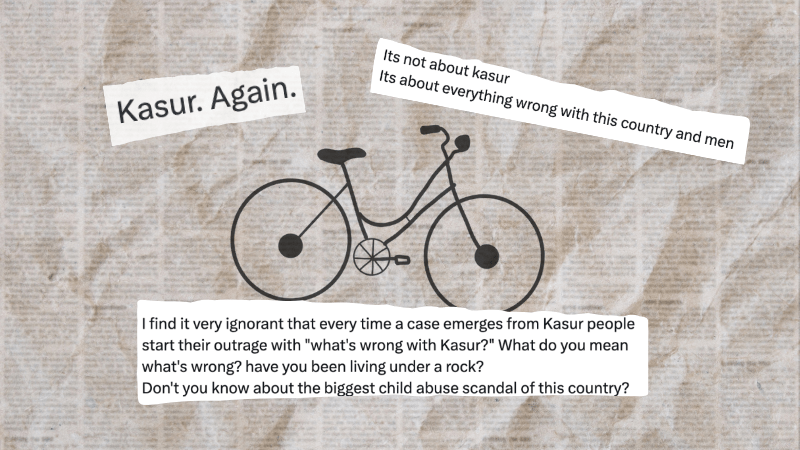
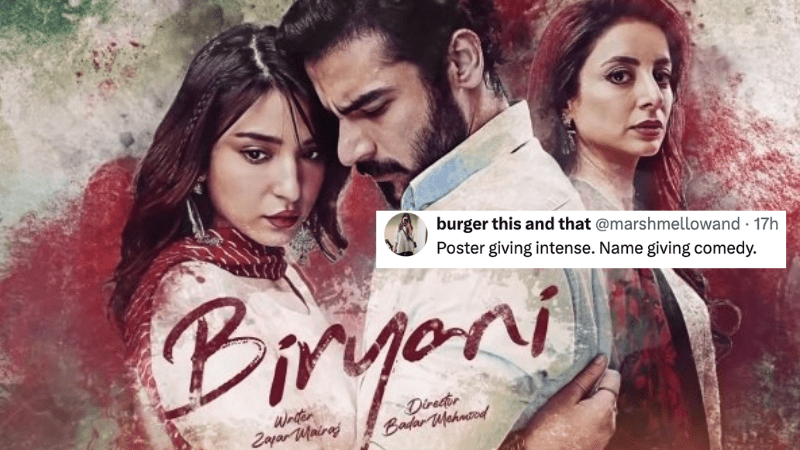
Comments